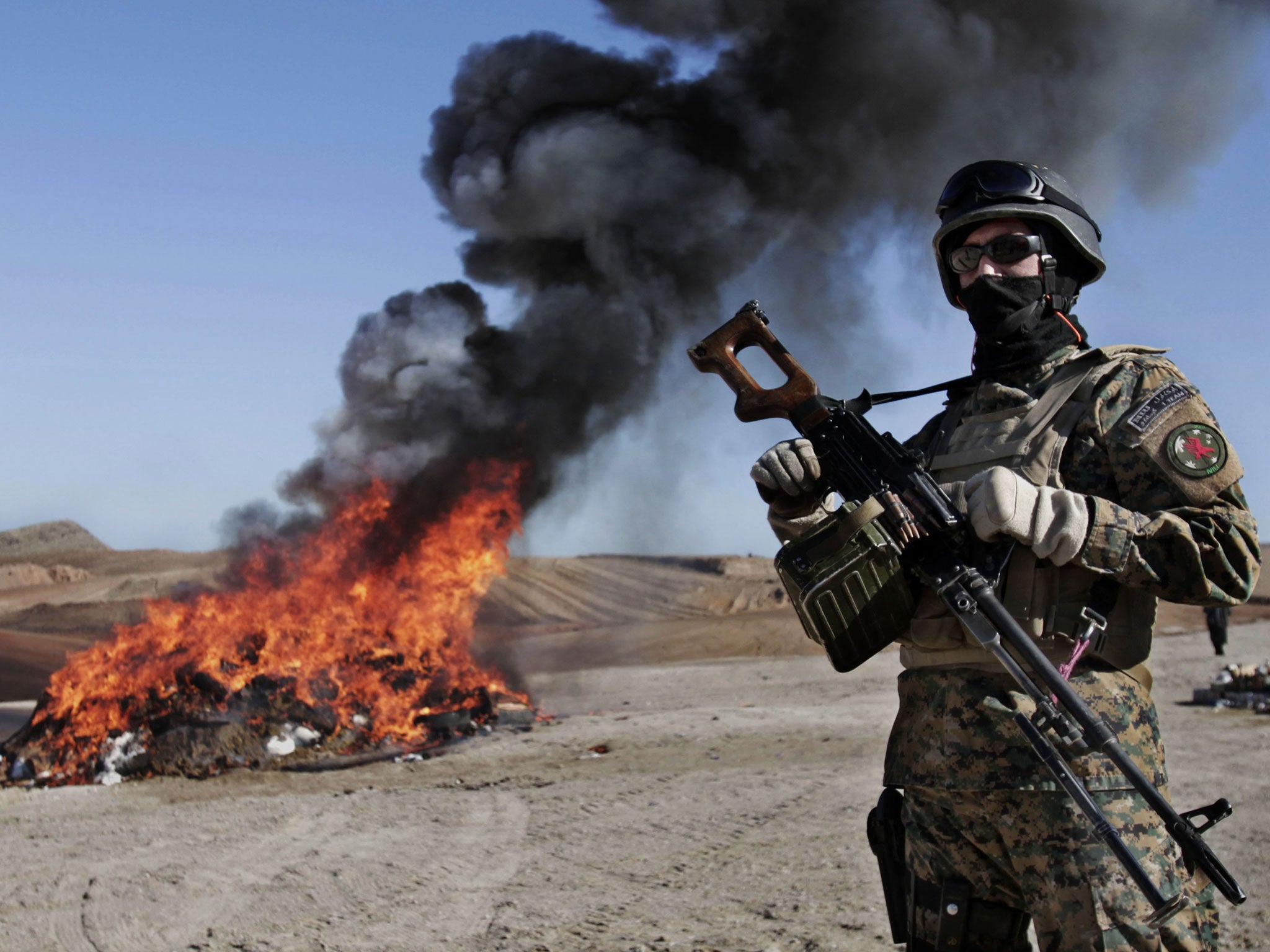Afghan troop cuts revealed as cost of war reaches £17bn
Chancellor pushes for early exit in bid to reduce military bill

The cost of the war in Afghanistan to the taxpayer has reached £17.4bn, the Government disclosed today, as it set out details of the accelerated exit plan for British troops.
The size of the UK presence will be reduced from 9,000 to 5,200 by the end of 2013, with all but a few hundred of the remaining troops returning home the following year.
Ministers are hastening Britain’s exit from the 11-year war despite fears that the Afghan forces could lose control of parts of the country after Western forces leave.
George Osborne, the Chancellor, is believed to be among senior Cabinet ministers pressing for more drastic and more immediate cuts in troop numbers – not least because of the huge sums involved in maintaining the military operation.
Philip Hammond, the Defence Secretary, told MPs that the war had cost £17.4bn in addition to his department’s core budget. His disclosure signals that the final price tag is likely to be around £20bn.
Although the number of troops in Afghanistan will be significantly smaller in 12 months’ time, the Government’s decision is still viewed by military commanders as a far better outcome than they feared.
General Sir David Richards, the head of the UK’s armed forces, persuaded David Cameron that a force of at least 9,000 should be kept until the end of next summer’s fighting season. Failure to do so would jeopardise hard-won gains and put undue strain on Afghan security forces, he warned.
However, the withdrawal will begin in April, with fewer replacements sent over in the spring at the regular six-monthly rotation of troops. Another drawdown will take place in September or October.
Mr Hammond said: “The 5,200 number has been arrived at through a bottom-up process of military logic and military planning, looking at the shape of the force and the scale of the force to deliver the tasks that we expect to be delivering by the end of 2013.
“Everybody talks of an increasing confidence, of an increasing competence and an increasing willingness to engage by the Afghan forces, a step change in the level of what they are able to do.” But he conceded that “green on blue” attacks by rogue members of the Afghan security forces remained a serious threat.
Mr Hammond added: “The insurgents remain committed to conducting a campaign of violence in Afghanistan. They continue to represent a threat to the future stability of the country.”
The military faces another round of decisions on the pace of the drawdown in 2014 in the mission’s final year, as well as how many military advisers to leave behind to support Afghan forces. A few hundred other troops will remain to organise the return of expensive military hardware, including tanks and helicopters, to Britain.
As with other such moves, the plans will be largely influenced by actions taken by the United States. It is believed that the American presence in the country could be as low as 6,000 after 2014.
Speaking at Prime Minister’s Questions, Mr Cameron said: “We will not be leaving Afghanistan in terms of our support and our help for the Afghans. We will be contributing £70m a year to help pay for the Afghan National Security Forces. We will have an aid programme in excess of £70m a year for Afghanistan.”
He also told MPs that he was “focused” on building links between Afghanistan and its neighbour Pakistan and that he had hosted two meetings between the countries’ presidents.
Jim Murphy, Labour defence spokesman, said: “Many will want reassurances about the safety of those who will remain in Afghanistan after their comrades have left. They may experience increased risk against which they must be protected.
“The country will also want assurance that the troops who return from Afghanistan will not be sent to the back of the dole queue by compulsory Army redundancies.”
Subscribe to Independent Premium to bookmark this article
Want to bookmark your favourite articles and stories to read or reference later? Start your Independent Premium subscription today.

Join our commenting forum
Join thought-provoking conversations, follow other Independent readers and see their replies